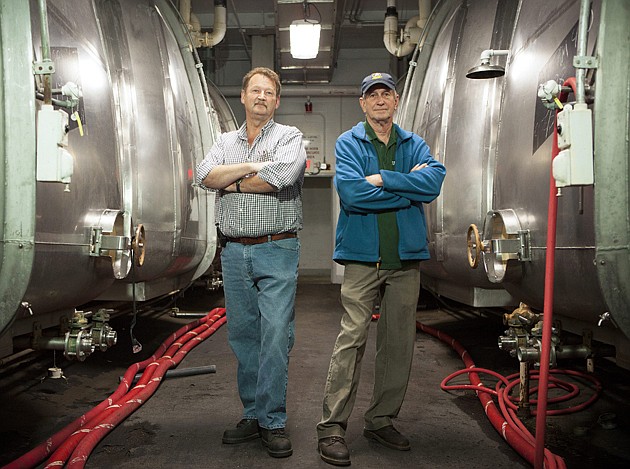- November 25, 2024
-
-
Loading

Loading

The brewer D.G. Yuengling & Son has survived for nearly two centuries in an American landscape littered with the remains of breweries, once household names, that grew fast and fell by the wayside. Based in Pennsylvania, the family-owned company, known as the nation's oldest brewer, is growing too, but with caution.
At Yuengling's Tampa brewery, the company's sole location outside of Pottsville, Pa., Plant Manager Andy Pickerell and Jim Helmke, chief operating officer, guide the plant's growth as it builds a new, state-of-the-art brewhouse that will more than double its capacity, to 2.5 million barrels a year. The brewhouse is expected to open in April.
In the competitive world of American beer production, a $96 billion industry, nearly 2,000 breweries, large and small, fight for market share. Two companies, Anheuser-Busch and Miller-Coors, dominate the market with a combined 75% of sales. It's tempting for rivals to snap up competitors or spin out more barrels to increase their share of the lucrative market.
But Yuengling's managers have no intention of doubling their production right away. Nor do they intend to hire a batch of new employees to handle rising sales, or beef up management. The plant runs lean, and that's how they want it, as they rein in costs and learn from missteps that cost other brewers their livelihood.
The Tampa brewery sits on the site of a former Stroh Brewery Co. plant. Detroit-based Stroh, which absorbed the Schlitz brand, dissolved in 2000, after selling its brands to Miller Brewing Co. and Pabst Brewing Co.
As they raced to meet burgeoning demand, some breweries lost sight of both their primary goal — producing quality beer — and their budgets, the Yuengling managers contend. “Their fixed costs started to exceed what they could make with their brewing,” says Helmke. “They had massive staffs.” Some built poorly located facilities, which made it hard to run them efficiently.
As it expands, Yuengling guards its reputation as a brewer, because the quality of its beer is the key to its success. “We could easily go out and do contract brewing. We could work with one of the larger breweries and have them make our beer. We could expand in all 50 states. We could be three times as big as we are right now. But that's not part of the Yuengling approach,” says Helmke.
At Yuengling's Tampa brewery, 80 employees produce 1 million barrels of beer annually. A barrel of beer equals about 13.5 cases , with each case holding 24, 12-ounce bottles. “That's very productive,” says Pickerell. The lean management, without layers of middle managers, also allows employees to approach top executives with suggestions. “A relief worker last week gave me a list of five things that would help the bottle filler run better,” Pickerell says, adding that the plant is implementing all of them.
He will take his time raising the plant's output, projecting 1.1 million to 1.5 million barrels for 2013, up from 1 million in 2012 and 890,000 barrels in 2011. Yuengling wants to remain a medium-sized company, Pickerell says.
Florida sales outstrip company-wide sales, rising 10-15% annually compared with 8% for the company, says Helmke. He declines to reveal revenue for the privately held firm.
Although the Tampa managers remain in close contact with owner Dick Yuengling, communicating often by phone, they operate fairly autonomously, making operational decisions and charting expansion. Yuengling, a fifth-generation owner bought the Tampa plant in 1999 and markets it as part of the oldest U.S. brewery. German immigrant David Jüngling established the Pennsylvania brewery in 1829—“Yuengling” is an Americanization of “Jüngling,” the German word for young man.
The conservative approach to staffing and production carries over into distribution. With Tampa sales growing by at least 10% annually, the brewers face rising demand for Yuengling's eight labels, particularly the traditional lager. However, the company won't expand sales until increased production can meet the demand.
When Helmke came to the Tampa brewery in 2006, it produced 600,000 barrels a year. In six years, through 2012, production rose to 1 million barrels.
“You service your customer,” Pickerell cautions. A brewer has to marry sales with capacity.
Some brewers that vanished diluted their beer to afford new facilities as they grew, switching to less expensive ingredients or cutting corners in production. But that affected taste and the companies' reputation. The Yuengling brewers apply such lessons to ensure the company's survival.
The takeaway, says Helmke, is simple: “Don't grow faster than you're able to effectively manage.”